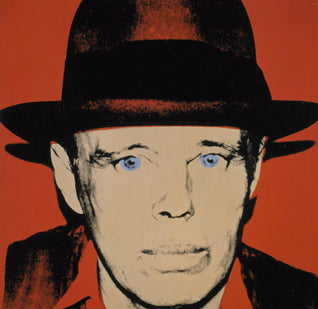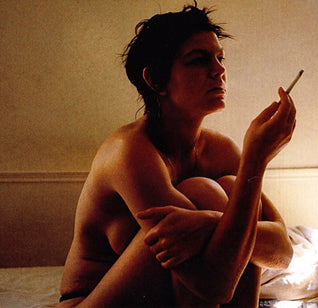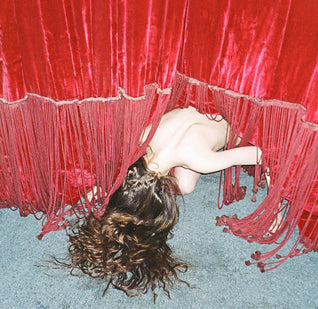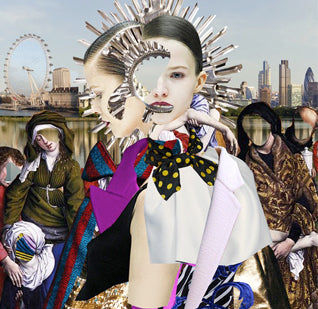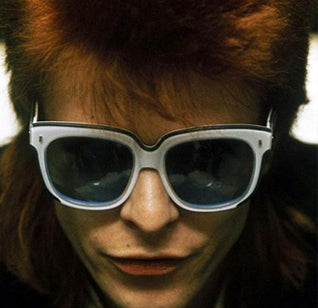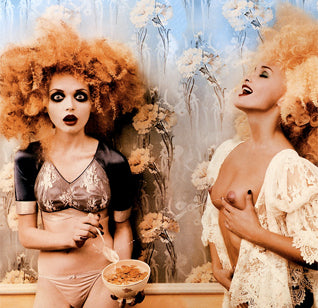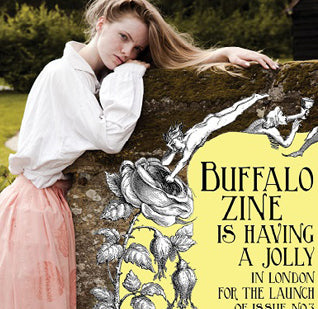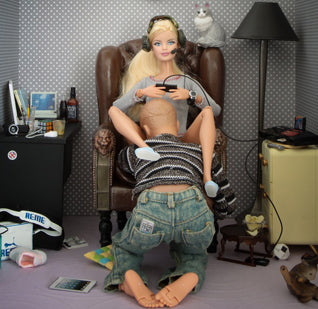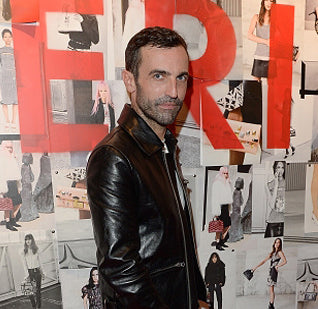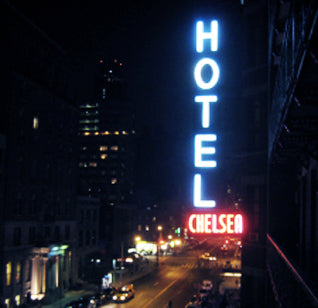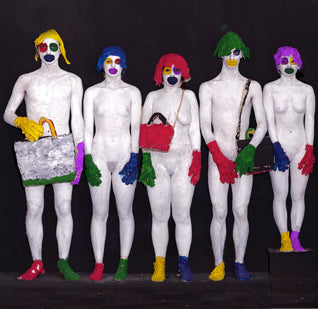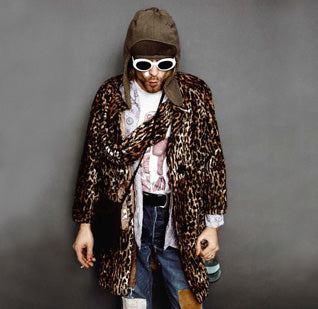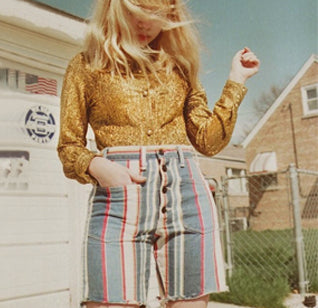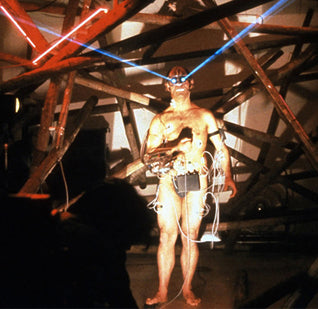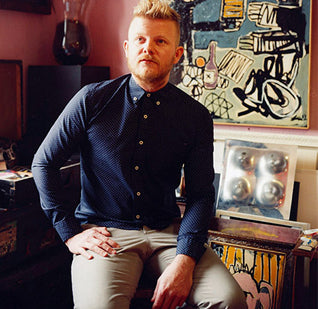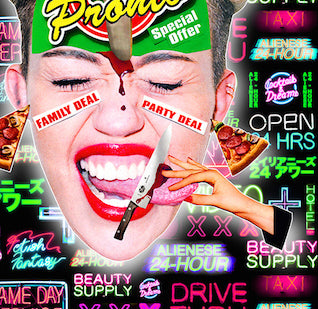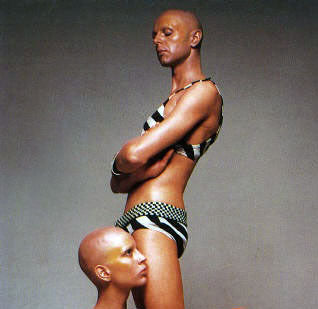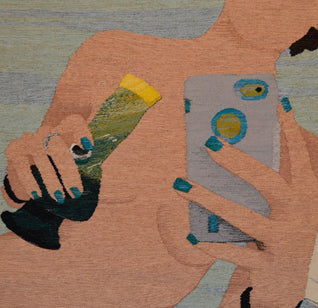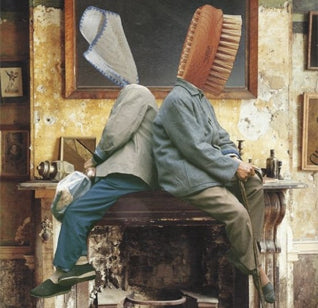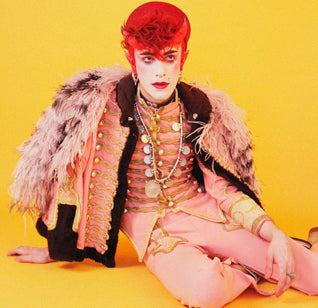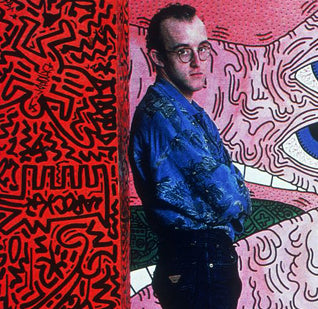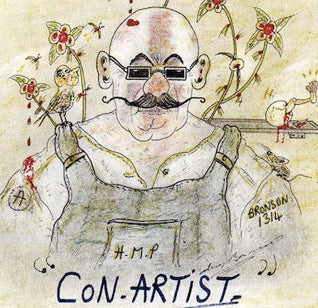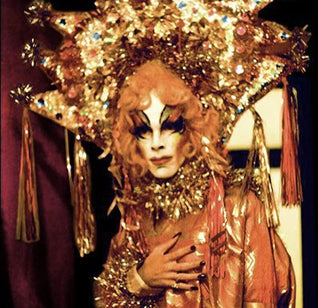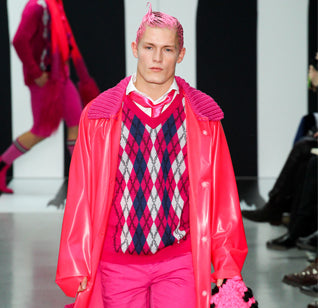GODFATHER OF PUNK POETRY, JOHN COPPER CLARKE IS BACK
Artist John Cooper Clarke on Baudelaire, Byron and Eminem
by Freddie Machin
John Cooper Clarke is a punk legend. In his heyday he performed his own brand of anarchic, rapid-fire poetry alongside Joy Division, The Sex Pistols and Siouxsie and the Banshees. He shared an apartment with Nico of The Velvet Underground and lived a street away from Beat Generation poet Gregory Corso. Always impeccably attired, armed with an encyclopaedic cultural knowledge and a razor sharp wit, JCC is still bringing the house down at the tender age of sixty-five. Kids of Dada caught up with ‘The Bard of Salford'.![]()
John Cooper Clarke
KOD: How was the show tonight Johnny?
JCC: Good. When I’m on the road solid, it gets a bit more slick. We’re doing seven nights in a row this week. I like it busy – I write more – the more you work, the more you work.
KOD: Are you looking forward to going to America in September?
JCC: I couldn’t be happier. I’m of that generation that is in thrall to America. Everything I like is from there. America all the way.
KOD: Is that because of the influence of television in your early years?
JCC: Telly, music – movies especially – I mean where would you be without them? It’s the most magic thing isn’t it? Even more than music.
KOD: When did you first get a TV?
JCC: On the day of the funeral of Pope Pious XII, sometime in 1958. We couldn’t have got it at a better time because everybody that had a telly at our school was allowed to go home and watch it. So the first day we got it, it paid off. I’ve got a confession to make though, I didn’t watch the entire funeral.
![]()
John Cooper Clarke
KOD: You have been a huge influence on countless contemporary artists, have you ever met your idol?
JCC: Oh most of them, Little Richard, Jerry Lee Lewis. If I would have ever met Elvis though, that would have been me finished. It would have tipped me over the edge.
KOD: How do you mean?
JCC: You wouldn’t be able to watch anyone again. Even The Beatles would be an anti-climax. I remember that when I was a kid, I used to think – why do Teds [Teddy Boys] all take their chick to see Gene Vincent? They’d never take them to see an Elvis film because you’re just shooting yourself in the foot. She’s going to look at you and then remember that movie and she’s just going to go ‘is this all there is?’
KOD: I know you’re not an angry person, but you have described the need to write as being borne out of ‘impotent rage’ do you still feel that?
JCC: On a daily basis, but of course one can’t write poetry in a rage. That would be ridiculous. You have to be in a kind of reflective, lonesome place. Even if you’re writing poetry that is high speed and dynamic, you know, it just doesn’t come out like puke. For anybody who writes lyrics, from Lord Byron to Eminem writing is a reflective situation. I can’t prove that – but surely it’s the case.
KOD:Do you ever feel struck by the muse?
JCC: Inspiration is for amateurs. It is a divine thing but not in that kind of Damascene way. Its not in that kind of road to Damascus ‘and now I see it all’ kind of way. If you’re a professional, you’ve got to write when you’re not inspired.
![]()
John Cooper Clarke
KOD: Your stuff lends itself well to music, is that because of the strong rhythm?
JCC: Perhaps that’s why, but having said that you think I’d be able to write a song but I can’t write songs.
KOD: But lots of your tracks have been put to music...
JCC: Yeah but it ain’t songs. As is evidenced by Alex’s [Turner, of the Arctic Monkeys] conversion of that poem [‘I Wanna Be Yours’ by Clarke] into a song by only adding a couple of lines. But that’s his genius. You know, Frank Sinatra sings the words to ‘The Road to Mandalay’ by Rudyard Kipling and makes sense with it. Some people lend themselves better – Kipling – I think his poems make great songs.
KOD: Is he your favourite writer?
JCC: Him, and Charles Baudelaire. Yeah absolutely. I think he’s a fantastic poet. My granddad was a soldier in India and he liked him so I was introduced to his work at a very early age. I don’t know where I’d be without that guy. I really don’t know how I would have ever got started.
KOD: Even despite some of Kipling’s more questionable opinions?
JCC: Anybody who says Kipling was a racist is out of their mind. At a time when white supremacy was a given, he wrote the lines:
‘By the living god that made you, you’re a better man than I am Gunga Din’
How can a racist come up with a sentiment like that? The Edwardian era was quite cutting edge – a time of radicalism and bicycles and vegetarianism and socialism and all those things but I can’t find any other examples of that kind of sentiment. He’s been tarred with that kind of imperial, colonial guilt which has led to the demonization of a very pure heart.








